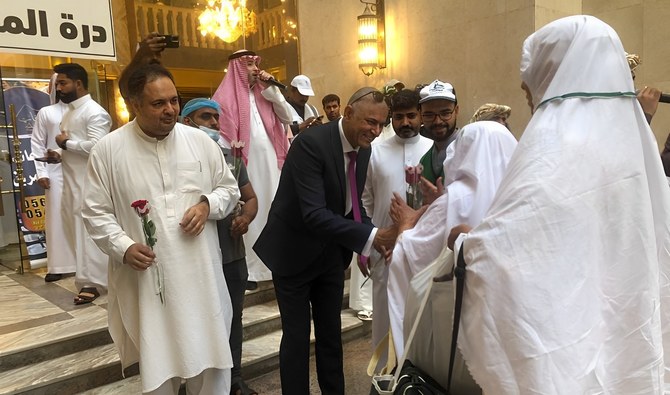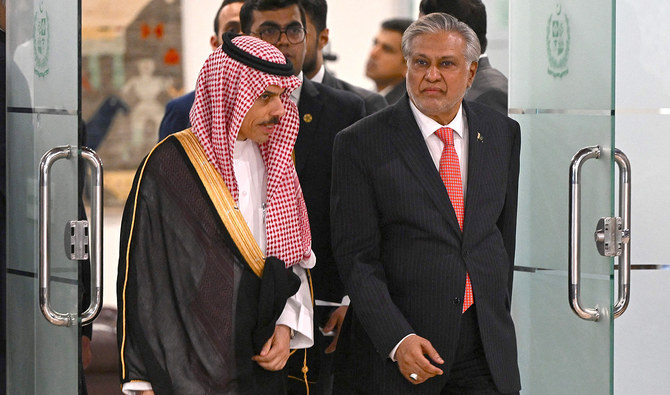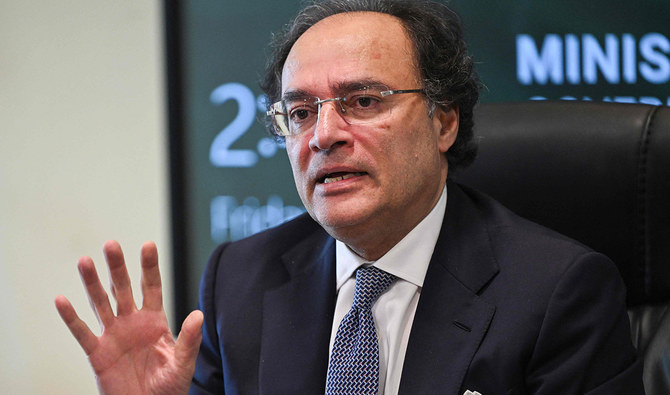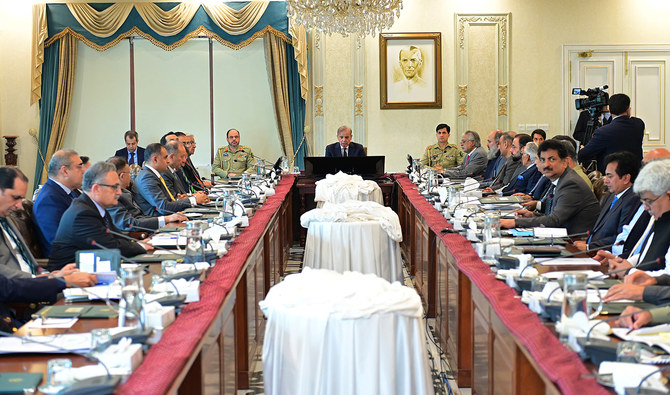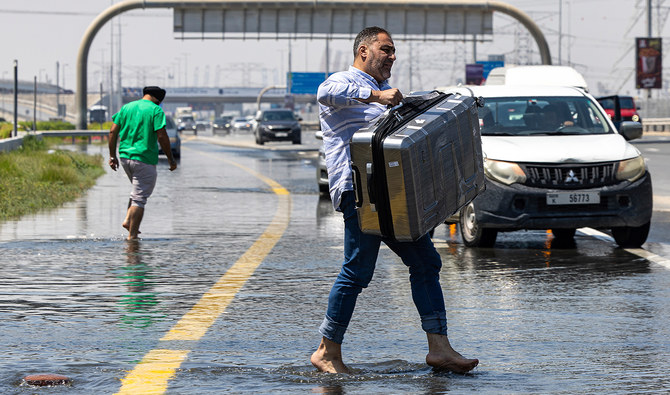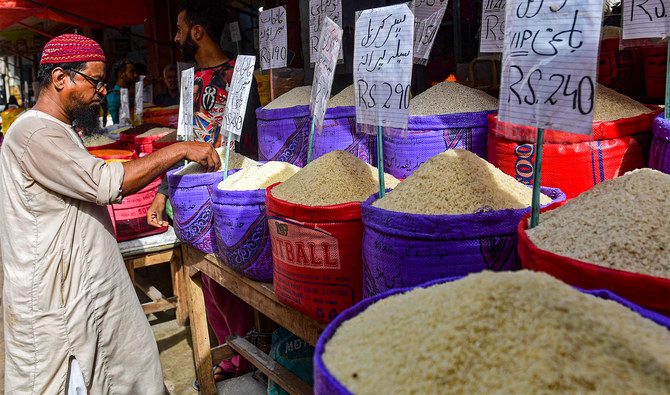ISLAMABAD: Over 40,000 Pakistani pilgrims have reached Makkah ahead of the Hajj pilgrimage which begins later this month, the religious affairs ministry said on Friday.
This January, Saudi Arabia reinstated Pakistan’s pre-pandemic Hajj quota, allowing 179,210 pilgrims from the South Asian country to participate in the annual Islamic religious ritual. The kingdom also removed the upper age limit of 65 years.
Out of Pakistan’s total Hajj quota, approximately 80,000 pilgrims will carry out the pilgrimage under a government scheme, while the remaining are using private tour operators.
“There are more than 40,000 official Hajj pilgrims in Makkah today,” a spokesperson for the religious affairs ministry said. “By evening, another 3,000 pilgrims will reach Makkah after completing their stay in Madinah.”
Pakistan launched a special flight operation for aspiring Hajjis on May 22. The first group of flights were directed to Madinah, where people performing Hajj under the government scheme spent approximately eight days before traveling onwards to Makkah. The Madinah flight operation has ended while flights to Jeddah started this week.
On Tuesday, the government announced the establishment of a central control room in Makkah, overseen by its Hajj mission.
“The control room will manage transportation from Jeddah airport to Makkah, as well as other logistics in Makkah and Madinah such as residence management, medical facilities, food, and other necessities,” Muhammad Umer Butt, a ministry spokesperson, told Arab News from Saudi Arabia.
The government has also made other arrangements, including the establishment of two hospitals and twelve dispensaries in Makkah and Madinah, to ensure the well-being of pilgrims. On Thursday, Pakistan’s religious affairs ministry said pilgrims were being provided round-the-clock transportation facilities through 190 modern buses to and from the Great Mosque of Makkah or Masjid al-Haram.
Prior to the commencement of Hajj, which is expected to begin on June 26, the ministry said it would increase the number of buses to 360 once all intending Pakistani pilgrims reached Makkah. Bus stops had been set up at various locations around Haram, including Ajyad, Ghaza, Jorwal, and Kadi, while 28 guides had been appointed to instruct pilgrims about internal and external routes of the Haram.



